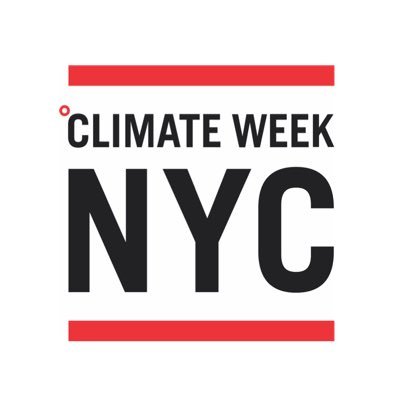
Event overview
Climate Odyssey 2040: Transformative actions to strengthen community resilience and infrastructure
Wednesday, September 22
Picture this — the year is 2040 and humans successfully kept global climate change to below 1.5 degrees Celsius. We as a society collectively decided to prioritize ways of alleviating the effects of climate change — as communities developed capacities to prepare for, cope with, and recover from its consequences. Fortunately, while this is an idealized world it’s also a realistic one. The question then becomes, what steps must we take to ensure this future?
Dynamo Energy Hub is perfectly suited to help answer this question as we’re able to uniquely bring together climate resiliency leaders through our expansive network who are actively working on solving this problem. This increasingly timely event occurred during New York Climate Week.
The premise of the session allowed leaders across a variety of sectors in the climate resiliency field to discuss what sort of adaptations future communities might have come up with to cope with the new, warmer world they live in.
The event kicked off with remarks from Anna Brown, Innovation at NYSERDA, who reiterated the vital need to increase our climate mitigation efforts today — through scaling up investments and resiliency capacities while simultaneously tackling and eliminating climate inequities that exist today.
Cristina Rumbaitis del Rio, Senior Adaptation and Resilience Advisor at World Resources Institute set the stage for the session by giving an overview of the world we currently live in. She began by stating what she believes to be a triple crisis:
“We’re facing a triple crisis: greenhouse gases are still increasing, we’re radically under-investing in resilience and adaptation, and we’re also grappling with a legacy of racial and social injustice that that really matters here to this discussion.” — Cristina Rumbaitis del Rio, Senior Adaptation and Resilience Advisor at World Resources Institute
Cristina noted how we are globally facing increasingly severe weather events like droughts, tropical storms, wildfires, and floods.
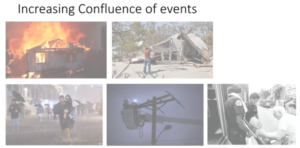
Credit: Cristina Rumbaitis del Rio, Senior Adaptation and Resilience Advisor at World Resources Institute
However, Cristina went beyond simply talking about the environmental impacts of climate change by linking climate change’s consequences to numerous other societal issues: an increasing correlation between hotter temperatures and psychological impacts, people of color are more likely to face negative health and weather effects of the changed climate, and the economies of developing countries are struggling to cope with the combined symptoms of climate change. These effects of climate change are poised to increase with every degree of global warming that we do not prevent.
After the brief review of our current state, attendees and participants then traveled forward through time to 2040 — an optimistic future in which we overhauled systems in 2021 to prevent the worst effects of climate change. The importance of transporting participants into the future was to show the vital and necessary steps that must be taken in the present day to reach our climate goals.
The session moved to an impactful and powerful conversation between a champion panelist lineup of all women.
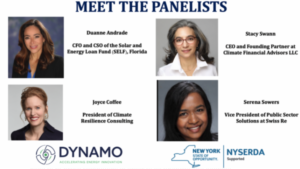
Anna asked the panelists what the major obstacles were back in 2021 that stood in the way of those necessary overhauls. Luckily, by being located in 2040, the panelists were able to provide insights about 2021 through a 20/20 hindsight vision.
A recurring answer was the issue of politics and policy: panelists pointed to how political stagnation and a lack of clarity between federal, state, and local policy were major obstacles to address. While politics was a primary issue preventing system overhaul, other additional obstacles included the need to re-prove technology in order to be financed and adopted.
Next, our time travelers talked about the levers of opportunity that were engaged back in 2021 to achieve a sub-1.5 future by 2040.
Serena Sowers, Vice President of Public Sector Solutions at Swiss Re, put it pithily when she mentioned that it can’t be done by the private, public, or nonprofit sectors alone. She instead focused on the necessity of partnerships and coalitions as being crucial to halting climate change in 2021.
“Insurance is a critical safety net to protect individuals from catastrophic events. As we think about the disproportionate impacts of climate change on individuals and communities, we need to work together to make insurance more responsive before, during, and after events that strain individual and community well-being.”— Serena Sowers, Vice President of Public Sector Solutions at Swiss Re
Stacy Swann, CEO and Founding Partner at Climate Financial Advisors LLC, noted that it required a change in our financial systems and the need to start asking the right questions.
“Every investment, every portfolio review, it doesn’t matter whether you’re investing in a community housing project or a big infrastructure project or anything in between, ask the question: what’s the climate risk? Can you identify it, assess it, and quantify it, and then proactively finance around that, so that you start to build in the incentives for resilience?” — Stacy Swann, CEO and Founding Partner at Climate Financial Advisors LLC
Swann also highlighted the sociological changes in which communities back in 2021 effectively demanded policy change of their lawmakers, and the international community came together to figure out how to take care of more highly exposed populations.
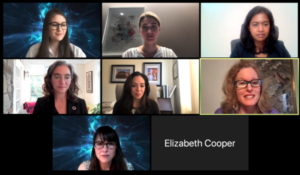 Image (from top left to right): Corinne Allen (NYSERDA), Anne Kuenning (DYNAMO), Serena Sowers (Swiss Re), Stacy Swann (Climate Financial Advisors LLC), Duanne Andrade (Solar and Energy Loan Fund), Joyce Coffee (Climate Resilience Consulting), Anna Brown (NYSERDA)
Image (from top left to right): Corinne Allen (NYSERDA), Anne Kuenning (DYNAMO), Serena Sowers (Swiss Re), Stacy Swann (Climate Financial Advisors LLC), Duanne Andrade (Solar and Energy Loan Fund), Joyce Coffee (Climate Resilience Consulting), Anna Brown (NYSERDA)
In their final comments, many of the panelists reframed the financial changes necessary as an ethical imperative of our society.
Joyce Coffee, President of Climate Resilience Consulting, highlighted the new financial system that was adopted in which investors are paid back based on community enhancement and wellbeing using tools like CDFIs, social impact bonds, environmental impact bonds, and Capital Improvement Planning. She also called out the financial services industry.
“You must have the metal to go beyond the norm, and make investments that build resilience for all, rather than avoiding risk for some.” — Joyce Coffee, President of Climate Resilience Consulting
Duanne Andrade, CFO and CSO of the Solar and Energy Loan Fund (SELF) Florida, reminded everyone that these financial systems should serve those who kept the world moving back in the ’20s when the world was dealing with COVID and how everyone deserves the opportunity to have a safety and healthy environment.
“Remember those front-line workers that kept us going when Covid19 hit; the nurse, the janitor; the delivery person; the postmen and women- they make up 40% of America and should not be left behind in the transition to a clean energy economy.” — Duanne Andrade, CFO and CSO of the Solar and Energy Loan Fund (SELF) Florida
After giving their final comments, our panelists got back in their time machine and returned to 2021 as it is today, bringing with them their retrospective look at the changes that need to happen in 2021 in order to secure an optimistic future.
Luckily, here at Dynamo, we are working to build the cross-sector connections that will need to happen in our time in order to secure a safe, healthy, and resilient future. We hope you will join us for future panels, and if you would like to watch the full recording of this one, click here to watch.
Speaker bios:
Serena Sowers, Vice President of Public Sector Solutions at SwissRe
 Serena Sowers is a Vice President at Swiss Re, who focuses on creating insurance-based solutions to critical global challenges, including natural catastrophes, climate change, healthcare, food security, infrastructure, and longevity. Serena works with government entities at the federal, state, and local levels to identify risks and develop risk transfer options. Serena is passionate about building strong and resilient communities by enabling individuals, governments, and businesses to plan for and recover quickly from shocks and stressors.
Serena Sowers is a Vice President at Swiss Re, who focuses on creating insurance-based solutions to critical global challenges, including natural catastrophes, climate change, healthcare, food security, infrastructure, and longevity. Serena works with government entities at the federal, state, and local levels to identify risks and develop risk transfer options. Serena is passionate about building strong and resilient communities by enabling individuals, governments, and businesses to plan for and recover quickly from shocks and stressors.
Stacy Swann, CEO and Founding Partner at Climate Financial Advisors LLC
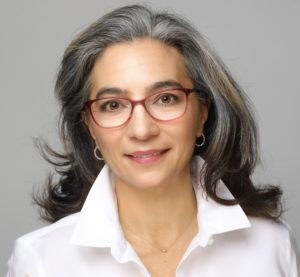 Stacy Swann is the CEO and Founding Partner of Climate Finance Advisors, a benefit LLC based in Washington, DC with expertise in banking, development finance, and climate change. Ms. Swann has more than two decades of experience building and shaping organizations, leading teams, and delivering climate and investment strategies through clear practical approaches that deliver results. During her career, Ms. Swann has held senior positions with the World Bank Group, and its private sector arm, the International Finance Corporation (IFC), as well as with the US Department of Treasury, Enron Corporation, and other organizations. For more than twenty years, she has worked with policymakers and financial institutions on issues related to mainstreaming climate considerations across both investment and policy and has particular expertise in blended finance, climate finance, climate-smart fiscal policies, and approaches to identify, assess and manage climate risk. In addition to leading Climate Finance Advisors, Ms. Swann currently sits on the Board for the Montgomery County Green Bankthe United States’ first county-level green bank and is Chair of its Investment Committee. She sits on the Design Funding Committee for Convergence Blended Finance, an organization supporting blended finance approaches globally, with a goal of increasing private sector investment in developing countries. She is also a member of the Board of the Global Water Partnership, a global action network of more than 3,000 Partner bodies in 179 countries focused on building sustainable water systems globally. She is a member of the Advisory Board of The Climate Service, a climate data and analytics firm, and is also a non-executive Board member of Neighborhood Sun, a community solar company based in Maryland. Stacy holds an MBA in Finance and Development Economics from American University, a master’s degree from Harvard University and a BA from City University of New York – Hunter College.
Stacy Swann is the CEO and Founding Partner of Climate Finance Advisors, a benefit LLC based in Washington, DC with expertise in banking, development finance, and climate change. Ms. Swann has more than two decades of experience building and shaping organizations, leading teams, and delivering climate and investment strategies through clear practical approaches that deliver results. During her career, Ms. Swann has held senior positions with the World Bank Group, and its private sector arm, the International Finance Corporation (IFC), as well as with the US Department of Treasury, Enron Corporation, and other organizations. For more than twenty years, she has worked with policymakers and financial institutions on issues related to mainstreaming climate considerations across both investment and policy and has particular expertise in blended finance, climate finance, climate-smart fiscal policies, and approaches to identify, assess and manage climate risk. In addition to leading Climate Finance Advisors, Ms. Swann currently sits on the Board for the Montgomery County Green Bankthe United States’ first county-level green bank and is Chair of its Investment Committee. She sits on the Design Funding Committee for Convergence Blended Finance, an organization supporting blended finance approaches globally, with a goal of increasing private sector investment in developing countries. She is also a member of the Board of the Global Water Partnership, a global action network of more than 3,000 Partner bodies in 179 countries focused on building sustainable water systems globally. She is a member of the Advisory Board of The Climate Service, a climate data and analytics firm, and is also a non-executive Board member of Neighborhood Sun, a community solar company based in Maryland. Stacy holds an MBA in Finance and Development Economics from American University, a master’s degree from Harvard University and a BA from City University of New York – Hunter College.
Joyce Coffee, President of Climate Resilience Consulting
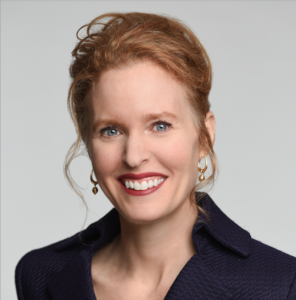 Joyce Coffee, LEED AP, is founder and President of Climate Resilience Consulting, a social enterprise that works with clients to create practical strategies that enhance markets and communities through adaptation to climate change. Coffee has 25 years of leadership experience in government, private, nonprofit, philanthropic and academic sectors. She has worked with over 200 institutions to create and implement climate-related resilience strategies. Specific areas of emphasis include resilience strategy, resilience finance, resilience measurement and social equity. She is an appointed director or chair of twenty nonprofit boards and initiatives. She received a B.S. in biology, environmental studies and Asian studies from Tufts University and a Masters in city planning from the Massachusetts Institute of Technology.
Joyce Coffee, LEED AP, is founder and President of Climate Resilience Consulting, a social enterprise that works with clients to create practical strategies that enhance markets and communities through adaptation to climate change. Coffee has 25 years of leadership experience in government, private, nonprofit, philanthropic and academic sectors. She has worked with over 200 institutions to create and implement climate-related resilience strategies. Specific areas of emphasis include resilience strategy, resilience finance, resilience measurement and social equity. She is an appointed director or chair of twenty nonprofit boards and initiatives. She received a B.S. in biology, environmental studies and Asian studies from Tufts University and a Masters in city planning from the Massachusetts Institute of Technology.
Duanne Andrade, CFO and CSO of the Solar and Energy Loan Fund (SELF), Florida
 In her current role, Andrade is responsible for raising grant and loan capital from philanthropic public and private sources and ensuring a prudent financial operation. She is also responsible for developing innovative financing programs to help low-and-moderate income residents and communities gain access to affordable capital for sustainable, climate resilient housing projects. Duanne has a Bachelor’s degree in Political Science and Economics from New York University (NYU) and a Master in Business Administration (MBA) from the Bolivian Catholic University’ Master’s for Development program in cooperation with the Harvard International Institute for Development (HIID). She also attended Sophia University in Tokyo, Japan during her freshman and sophomore years. Andrade is a Bolivian national who developed a passion for social and environmental justice issues while working in Latin America. During her professional life Andrade held positions in financial institutions in the United States, Bolivia and Mexico and also spent many years consulting for innovative financing programs focused on low-and-moderate income communities.
In her current role, Andrade is responsible for raising grant and loan capital from philanthropic public and private sources and ensuring a prudent financial operation. She is also responsible for developing innovative financing programs to help low-and-moderate income residents and communities gain access to affordable capital for sustainable, climate resilient housing projects. Duanne has a Bachelor’s degree in Political Science and Economics from New York University (NYU) and a Master in Business Administration (MBA) from the Bolivian Catholic University’ Master’s for Development program in cooperation with the Harvard International Institute for Development (HIID). She also attended Sophia University in Tokyo, Japan during her freshman and sophomore years. Andrade is a Bolivian national who developed a passion for social and environmental justice issues while working in Latin America. During her professional life Andrade held positions in financial institutions in the United States, Bolivia and Mexico and also spent many years consulting for innovative financing programs focused on low-and-moderate income communities.
Cristina Rumbaitis del Rio, Senior Adaptation and Resilience Advisor at World Resources Institute
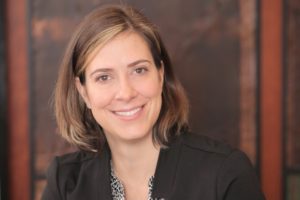 Cristina Rumbaitis del Rio is a Senior Adaptation and Resilience Advisor with the Climate Resilience Practice. Previously she was the Action Track Co-Manager for the Global Commission on Adaptation and Regional Programme manager for Action on Climate Today, a £23 million UK AID supported climate change programme that mainstreamed resilience into planning and budgeting at the national and sub-national level in India, Pakistan, Nepal, Bangladesh and Afghanistan. She managed an implementation team of approximately 40 people across the programme locations. Cristina was a Senior Associate Director at the Rockefeller Foundation in New York from 2007-2015, where she developed and managed initiatives regarding building resilience to climate change, water management, small scale fisheries, and preservation of ecosystems and the services they provide to humankind. She managed a grant portfolio of over $100 Million. Cristina was a post-doctoral fellow at Columbia University’s Earth Institute. She has a Bachelor of Arts degree from Columbia University and a Doctorate in Ecology from the University of Colorado. Cristina lives in Dorset, UK with her husband Allan.
Cristina Rumbaitis del Rio is a Senior Adaptation and Resilience Advisor with the Climate Resilience Practice. Previously she was the Action Track Co-Manager for the Global Commission on Adaptation and Regional Programme manager for Action on Climate Today, a £23 million UK AID supported climate change programme that mainstreamed resilience into planning and budgeting at the national and sub-national level in India, Pakistan, Nepal, Bangladesh and Afghanistan. She managed an implementation team of approximately 40 people across the programme locations. Cristina was a Senior Associate Director at the Rockefeller Foundation in New York from 2007-2015, where she developed and managed initiatives regarding building resilience to climate change, water management, small scale fisheries, and preservation of ecosystems and the services they provide to humankind. She managed a grant portfolio of over $100 Million. Cristina was a post-doctoral fellow at Columbia University’s Earth Institute. She has a Bachelor of Arts degree from Columbia University and a Doctorate in Ecology from the University of Colorado. Cristina lives in Dorset, UK with her husband Allan.
Anna Brown, Innovation at NYSERDA
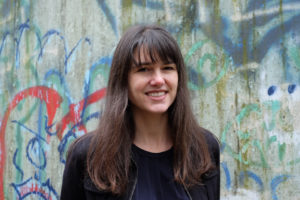 Anna Brown, Founder and Principal of Aequita Consulting LLC, is an interdisciplinary thinker and practitioner with 20 years of experience working at the intersections of human and environmental systems. Her life and career have focused on addressing two of the most pressing issues of our time: climate and social equity. She has deep experience in climate adaptation and resilience, inclusive urbanization, economic inclusion, and sustainable development in Asia, Africa, and North America. She currently leads a resilience integration effort with the New York State Energy Research and Development Authority (NYSERDA). At The Rockefeller Foundation, Anna managed the groundbreaking Asian Cities Climate Change Resilience Network (ACCCRN), a nine-year, multi-country initiative. She has contributed to the Global Commission on Adaptation, has led a North America regional climate adaptation strategy for The Nature Conservancy, and has supported strategy development for Coastal Enterprise, Inc (CEI), and World Resources Institute (WRI). Anna serves on several boards from local to global scales, in addition to actively participating in efforts to promote equity, justice, and climate action in her own community. Anna earned an undergraduate degree in Environmental Studies from Brown University and a Master’s in City Planning from the Massachusetts Institute of Technology (MIT).
Anna Brown, Founder and Principal of Aequita Consulting LLC, is an interdisciplinary thinker and practitioner with 20 years of experience working at the intersections of human and environmental systems. Her life and career have focused on addressing two of the most pressing issues of our time: climate and social equity. She has deep experience in climate adaptation and resilience, inclusive urbanization, economic inclusion, and sustainable development in Asia, Africa, and North America. She currently leads a resilience integration effort with the New York State Energy Research and Development Authority (NYSERDA). At The Rockefeller Foundation, Anna managed the groundbreaking Asian Cities Climate Change Resilience Network (ACCCRN), a nine-year, multi-country initiative. She has contributed to the Global Commission on Adaptation, has led a North America regional climate adaptation strategy for The Nature Conservancy, and has supported strategy development for Coastal Enterprise, Inc (CEI), and World Resources Institute (WRI). Anna serves on several boards from local to global scales, in addition to actively participating in efforts to promote equity, justice, and climate action in her own community. Anna earned an undergraduate degree in Environmental Studies from Brown University and a Master’s in City Planning from the Massachusetts Institute of Technology (MIT).
Climate Odyssey 2040: Transformative actions to strengthen community resilience and infrastructure
Wednesday, September 22 2021
2:00 PM EST
Zoom

Climate Odyssey 2040: Transformative actions to strengthen community resilience and infrastructure


